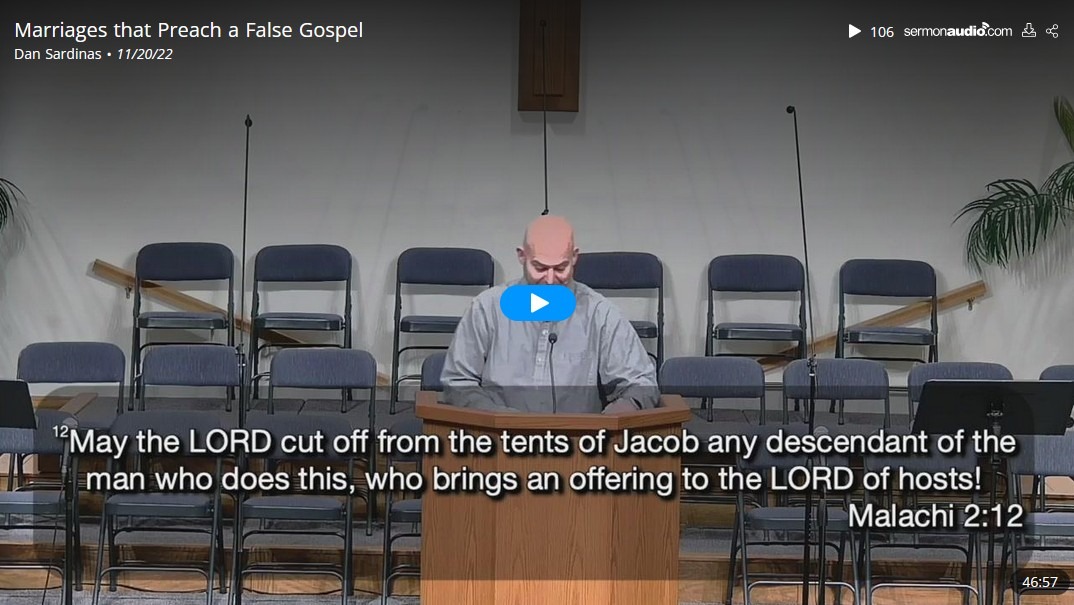Auto-generated transcript:
Open up your Bibles this morning to the Book of Malachi, chapter 2. Malachi is the last book of the Old Testament, and we’ve been exploring it now for several weeks. Lord willing, we will conclude this series on Christmas morning with a beautiful Messianic promise. What a wonderful way to celebrate Christmas!
Let’s begin by asking for God’s help as we examine His Word. Father, this is your Word, delivered through Malachi by your Spirit. May you be glorified through it. Fill me with your Spirit to accurately proclaim the truths within this passage, applying them to our hearts for repentance, transformation, and a deeper knowledge of you. Magnify the Lord Jesus this morning, for it is all about Him. In His precious name, amen.
Last week, in Malachi chapter 2, we saw God’s judgment against the priests of Israel for their apathetic and irreverent worship. Previously, Malachi addressed Israel’s general apathy—worship without passion or sincerity—which led to severe consequences. The priests specifically failed to uphold the glory and reverence due to God, resulting in their rejection. Yet, even in that judgment, we saw the glory of the gospel, where Jesus, our great High Priest, took our sins upon Himself.
Today, Malachi shifts his focus from the priests to the people of Israel. Verse 10 asks a rhetorical question, emphasizing their shared identity: “Have we not all one Father? Has not one God created us?” Malachi highlights their faithlessness towards one another, which he equates with profaning the covenant of their fathers—the Mosaic covenant. This covenant required Israel to love God and one another faithfully.
When our love for God grows cold, it inevitably affects our relationships with others. Malachi points out that Israel’s lack of faithfulness to God manifested in broken relationships and commitments among the people. This connection is echoed in the Apostle John’s words: one cannot love God and hate their brother simultaneously (1 John 4:20-21). Our love for others directly reflects our love for God.
Specifically, Israel demonstrated faithlessness by intermarrying with peoples who worshipped foreign gods, thus adopting idolatrous practices. God had commanded Israel to avoid such unions—not due to race, but to prevent spiritual corruption. Israel repeatedly failed this command, from Solomon’s era to the Book of Judges, leading them into practices like child sacrifice and temple prostitution. These practices polluted the temple and brought judgment upon them.
Malachi strongly condemns this behavior, stating that those who engage in such actions should be “cut off” (Malachi 2:12). Despite their sin, Israel continued to offer sacrifices, yet God rejected these offerings because their hearts were far from Him.
Furthermore, Malachi addresses marital faithlessness, condemning men who abandoned their wives for foreign women, breaking their marital covenants. Marriage is a sacred covenant, not a mere contract; it reflects God’s unwavering commitment to His people. Our marriages preach the gospel—displaying Christ’s faithful love for His church. Thus, breaking marital covenants dishonors God and misrepresents His faithful character.
Yet, even here, we see the gospel beautifully displayed. Though we often fail in faithfulness, Jesus Christ remains faithful. He established the New Covenant through His sacrifice on the cross, demonstrating perfect love and commitment to us, His bride, the Church. Unlike human failings, God’s covenant is not conditional—it is an unbreakable promise, secured by Christ’s sacrifice.
Let us repent where we have failed, seek forgiveness, and pursue reconciliation and faithfulness in our relationships, reflecting Christ’s unwavering love for us. May our marriages and relationships clearly portray the true gospel of Jesus Christ.
Father, thank you for your Word. Strengthen and sanctify our marriages, heal wounds, and grant forgiveness. Guide us to reflect your faithfulness in all our relationships. Help us live faithfully and joyfully in your grace. In Jesus’ name, amen.

